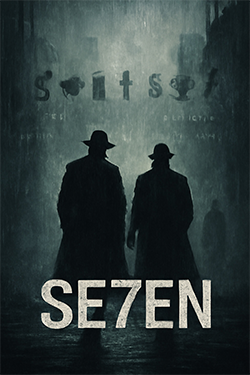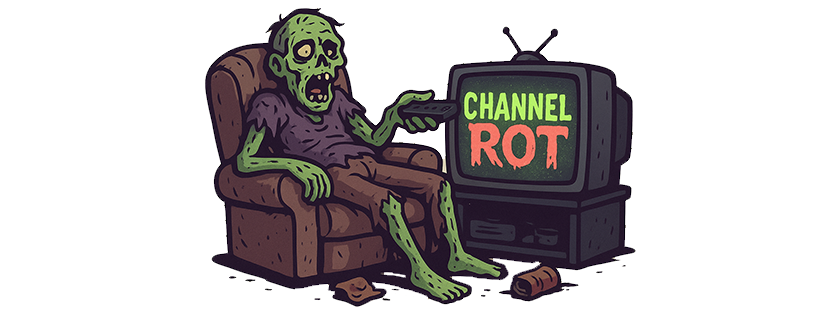
Se7en: What’s in the Box? Probably a Treatise on the Absurd
Se7en, the 1995 neo-noir masterpiece, offers more than just grisly murders, it presents a moral conundrum wrapped in dirty rain-soaked alleyways. In the spirit of Plato’s cave, the film casts us, the audience, as hapless prisoners chained to our seats, forced to witness the shadows of human depravity, except instead of shadows, it’s a series of grotesque crimes that are as grim as they are absurd. But, perhaps that’s the point: the world is fundamentally unfair, filthy, and inexplicably violent, so why not let the detective genre echo that bleak reality?
Our protagonist, Detective Mills, embodies Nietzsche’s concept of will to power, his desire to force meaning from a senseless world by solving murders tied to the seven deadly sins. Yet, like Sisyphus, he’s doomed to push the boulder of his own morality up an endless hill. The murderer, John Doe, serves as a twisted Socratic gadfly, challenging the ethical complacency of a society that pretends to hold onto some semblance of virtue, all while basking in its own filth.
But Se7en isn’t just about evil, it’s a mirror to our own capacity for self-destruction. It asks the question: In a world of violence, does virtue still matter? Spoiler alert: No. But don’t worry, you’ll be entertained as the world of gritty hopelessness unfolds before you, leaving you pondering your own existential dread.
